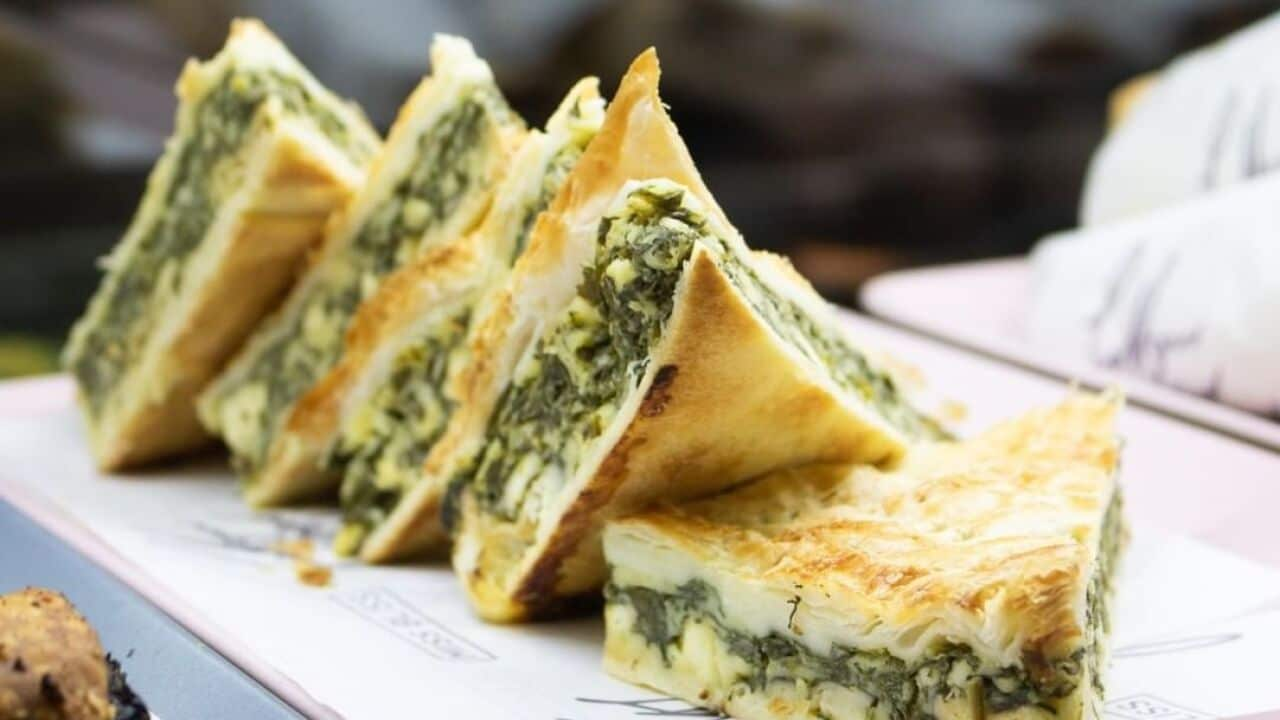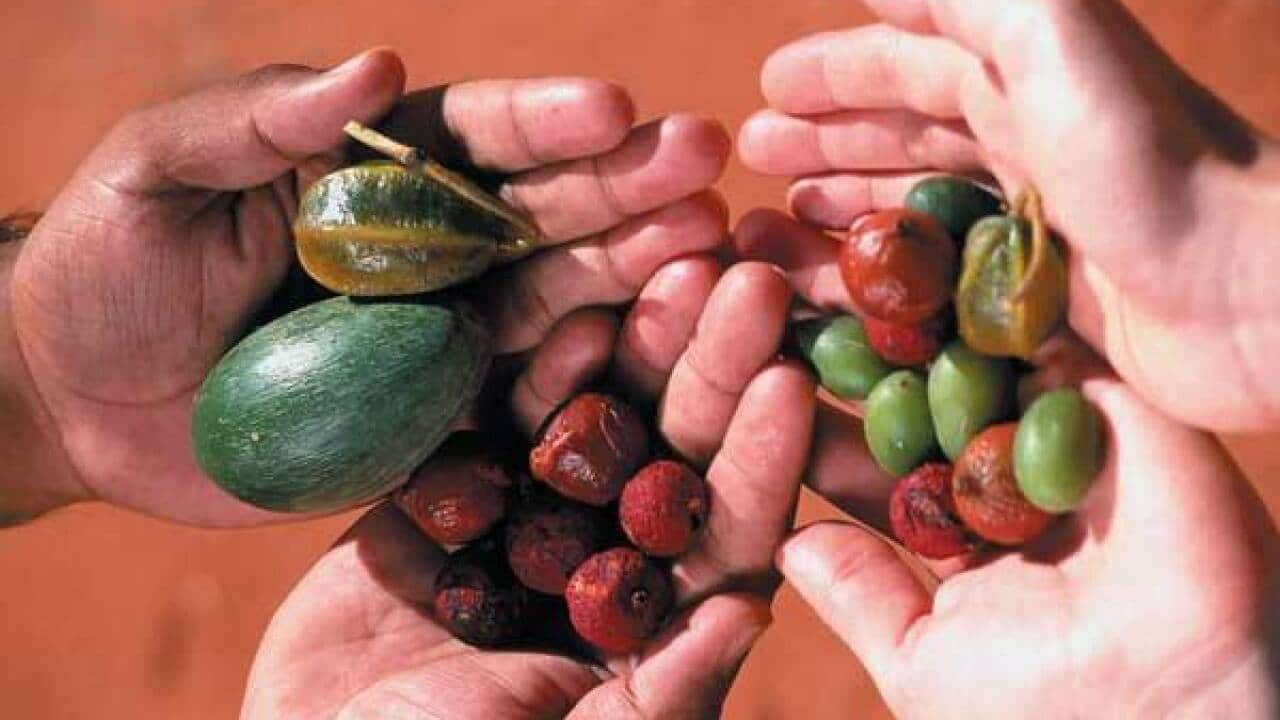1. Koori cooking classes
The Heart Foundation runs the , a free four-week healthy eating and cooking course delivered with local Aboriginal communities in the Illawarra and Shoalhaven regions of NSW.
The program helps local Indigenous people to connect with traditional food and culture, while also teaching participants how to cook healthy meals on a budget and read food labels.
“Aboriginal people have much compared to non-Aboriginal people,” says Andy Mark – Heart Foundation regional health promotion coordinator in the Illawarra/Shoalhaven region NSW. “So healthy eating and physical activity are really important from a cardiovascular point of view.
“People who participate in the program can go away and cook up a healthy meal with lots of vegetables that is low in saturated fat and salt, is affordable and tastes good.”
Mark explains that the meals cooked contain as much budget-friendly native ingredients as possible, like kangaroo, locally gathered Warrigal greens, healthy store-bought sauces with Kakadu plum, natural lime or ginger, and home-grown bush pepper and lemon myrtle.
The organisation also hosts regular events across NSW community groups to experiment with new, healthy foods.
The competition features a cooking battle between four teams of four and mystery ingredients and is judged by Indigenous elders.
“The cook-off is a fun event that demonstrates healthy eating and gives people an opportunity to try cooking new healthy recipes too that they may not have been exposed to before,” explains Mark. “It’s a chance for people to try something different.”
2. Granting equal access to healthy food
The helps people of all ages and cultures to have consistent access to healthy food.
It runs breakfast clubs, community gardens and Meals on Wheels programs, as well as free nutrition education to teach people from vulnerable communities how to eat a balanced diet on a limited budget, maintain a healthy weight and manage chronic disease.
The education workshops, called , targets hard to reach groups and families including Aboriginal and Torres Strait Islander people, people from culturally and linguistically diverse communities, migrants, refugees, prisoners, the elderly, people with mental illness and young people.
After four-to-eight FoodREDi training sessions, participants walk away with basic cooking skills, knowledge of how to increase their consumption of fruit and vegetables in their daily diet, and a stronger sense of social connection.
The workshops are offered in all Australian states except Queensland.
3. Classes that focus on dietetic basics
is a non-profit organisation that delivers cooking workshops for vulnerable groups including young mothers, seniors, people with mental health issues, new arrivals, refugees and asylum seekers.
The two-hour cooking classes are run by qualified Accredited Practising Dietitians – not chefs – to inspire healthy eating and living throughout the community.
“Everything you put in your mouth has an impact on your general wellbeing including your mental health,” says Leanne Elliston, Accredited Practising Dietitian and program manager for Nutrition Australia ACT. “People who are more vulnerable are also more likely to suffer from health conditions, both physically and mentally.
“So learning how to do simple things, like choosing healthy, budget-conscious meals that they can prepare easily can actually turn things around for many vulnerable people.”
Everything you put in your mouth has an impact on your general wellbeing including your mental health.
Each workshop, costing $65 a group session, sees participants cook and eat a two-course meal.
The charity also currently runs the program, , for people living with a disability, facilitated as part of an individual’s NDIS funding. “We help people with a disability to cook for themselves and build their practical and nutritional skills to understand what healthy food is,” Elliston tells SBS.
Project Dinnertime offers one-on-one tailored cooking clinics and group cooking classes in a fully accessible kitchen. Classes are tailored to suit the nutritional needs of all participants. It is funded through the NDIS. “Everyone has a different level of ability so the support we offer has to be tailored to cater for people’s different nutritional needs.”
4. Cooking workshops in remote WA
, in partnership with BHP, offers culturally appropriate healthy eating programs to people living throughout the Pilbara.
Qualified nutritionists and dietitians from Foodbank WA visit the Pilbara 10 times a year, delivering food education programs for adults, parents and school children in need of support to live a more healthy lifestyle.
They run free cooking workshops and breakfast programs in schools to ensure that all students have an opportunity to enjoy a wholesome breakfast. The team also attends youth centres, playgroups and early childhood centres throughout the Pilbara to teach teens and adults nutritious recipes and healthy eating skills.
To find out more, visit
5. Helping people to regain the art of cooking
program, delivered by The Good Foundation in Australia, sets out to tackle one big issue that’s contributing to a growing national obesity epidemic and the development of obesity-related diseases like heart disease and diabetes – people are forgetting how to cook.
“Today, cooking skills are not being passed on like they used to,” . “If we don't even know the basics about food and cooking, we're not likely to give it a try. Within a couple more generations we are at risk of completely losing our cooking skills.”
The aim is to get people cooking again and teach them how to live a more nutritious lifestyle, fuelled by hearty home cooking.
The Jamie's Ministry of Food Program runs hands-on cooking courses for people aged 12 and over so they can learn basic skills – simple food preparation techniques, food storage, nutritional principles, meal planning and meal budgeting. The aim is to get people cooking again and teach them how to live a more nutritious lifestyle, fuelled by hearty home cooking.
To date, the program has worked with almost 40,000 participants including school students, single parents, Aboriginal and Torres Strait Islanders, the unemployed, youth, people with a disability and families on low incomes.
The program runs for five weeks, as that is “the ideal amount of time the required to embed health benefits for the long term,” the organisation says. Each 90-minute class costs $10-$30, depending on the participant, as the course is subsidised.









